Roma: Contributions to the Development of the Romanian State
Roma: contributions to the development of the Romanian state
ERIAC INTERNATIONAL OUTREACH PROGRAM
21-22 February 2018
Bucharest, Romania
On the 21 February 2018, the first event of European Roma Institute for Arts and Culture (ERIAC) in Romania took place in Bucharest. The date of the event coincided not only with the centenary celebration of the Romanian state, but also with the celebration of 162 years from the abolition of slavery on the Romanian Lands. The event was organized inside the Romanian National History Museum, as the venue has important symbolic significance. Moreover, the initiative found a great deal of support among high-level representatives of many central authorities and organizations, developing partnerships with the National Agency for Roma, National Roma Contact Point – European Funds Ministry, Roma National Cultural Center, Roma Studies Master Program – SNSPA and Romano ButiQ Association.
The event hosted around 120 participants, representatives of governmental authorities, embassies and NGOs, including the German Embassy, the Embassy of Israel, the USA Embassy, the Ministry of Culture, the Ministry of External Affairs, and the Ministry of Diaspora Romanians.
The event started with a speech by Dr. Ciprian Necula, the ERIAC country coordinator in Romania, who described the context in which the event took place, followed by the director of the National History Museum of Romania, Mr. Ernest Oberlander-Târnoveanu, who expressed his support for the ERIAC initiative and other future initiatives with a similar objective. Next, Mrs. Timea Junghaus, Executive Director of ERIAC took the floor and described the broader context of the ERIAC series of events in Europe.
After the brief inaugural session, the first cultural expression of the event took place – a fragment from the theatrical play “The Great Shame/Marea Rusine,” directed by Alina Şerban. The piece deals with the topic of slavery of Roma in the Romanian and Moldovan countries, and the connection and involvement of the Romanian Orthodox Church in this phenomenon – a debate that is needed in contemporary Romanian society, commonly being left out of the public discourse in today’s Romania.
At the end of the theatrical play, the guests were invited to the museum’s lobby for the next artistic performance – a concert called “One hundred years of music” by the well-known Roma band Mahala Rai Banda. The concert was not their ordinary piece but was a lesson-recital, which musically illustrated the history of “lautari” music in Romania over the last hundred years. The artists interpreted in chronological order pieces designed to track the impact of the Roma lautari on Romanian culture and music over time. Following the concert, a cocktail for participants was held in the lobby of the museum.
On the following day, 22 February, the “Roma: Participation in the Development of the Romanian State” conference took place in the National History Museum of Romania.
The conference was attended by about 95 guests, including representatives of the Ministry of Culture and National Identity, the Ministry of Economy, the Ministry of Youth, the Interethnic Relations Department, the Embassy of Norway, the Embassy of Israel, the British Council, the Romanian Presidency, the Ministry of Foreign Affairs, National Center of Roma, ISPMN, National Agency for Roma, Central European University, Chamber of Deputies, SNSPA, Faculty of Sociology and Social Assistance, Romanian Peace Foundation, Roma Education Fund Romania, Pakiv Romania, Sastipen and others.
The event was opened by Mrs. Timea Junghaus, executive director of ERIAC and Mr. Ernest Oberlander-Tarnoveanu, the director of the National History Museum of Romania. The conference continued with a short speech session facilitated by Ciprian Necula, followed by interventions from Mr. Sergiu Nistor, the Romanian President, Ms. Mihaela Toader, Secretary of State and of the Ministry of European Funds, Dr. Daniel Rădulescu, from the National Agency for Roma, and Mr. Mihai Neacsu, from the Roma National Center for Culture.
The second part of the conference contained 6 academic presentations on Roma contributions to the founding and development of the Romanian state. The session was moderated by Professor Dr. Vintilă Mihăilescu. The themes and panel speakers were as follows:
- “The History of Roma Contribution to the Foundation and Development of the Romanian State between 1918-1945” by Dr. Petre Matei;
- “Nicolae Gheorghe – 1001 thoughts and 100 years of loneliness. Centenary and Governance” by Dr. Vasile Ionescu;
- “Roma in Romania – a century of cultural stigmatization” by Dr. Delia Grigore;
- “Beyond the walls. Some Considerations on the Life and Religious Practices of Slavery in the 18th-19th Centuries” by Dr. Mirel Bănică;
- “Mimiu Community” by Dr. Cătălin Berescu;
- “Roma personalities and their contribution to the development of modern Romanian state” by Dr. Valentin Negoi
The final session was moderated by Iulius Rostas, from the Department of Roma Studies from Central European University (CEU), and included several guest speakers: Mr. Daniel Vasile, a Member of the Parliament of Romania / Partida Romilor Pro Europa, Florin Manole, a Member of the Romanian Parliament / Social Democrat Party, and Timea Junghaus, the Executive Director of ERIAC.
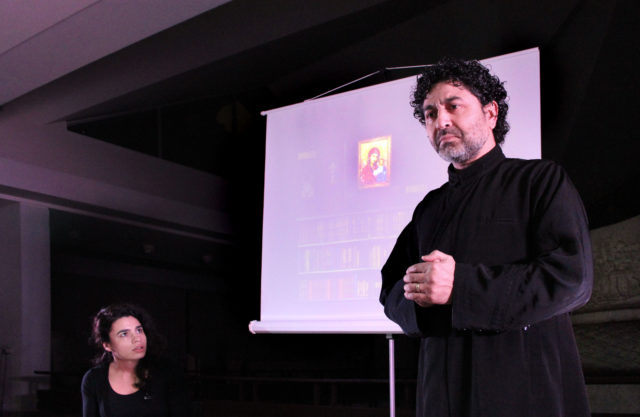
Alina Serban’s “The Great Shame”
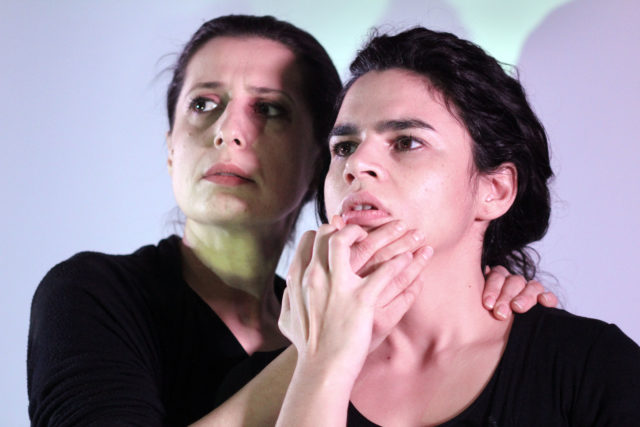
Alina Serban’s “The Great Shame”
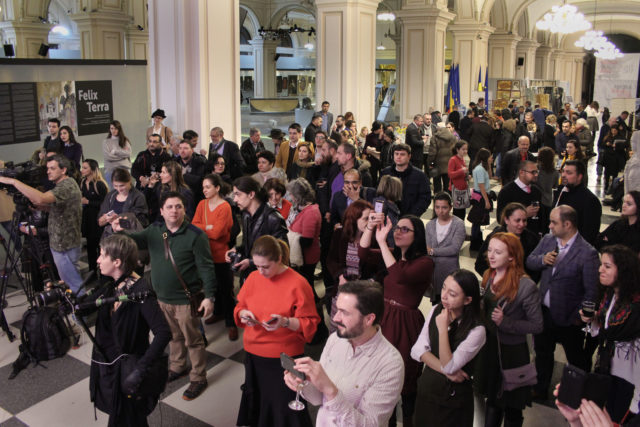
Mahala Rai Banda concert
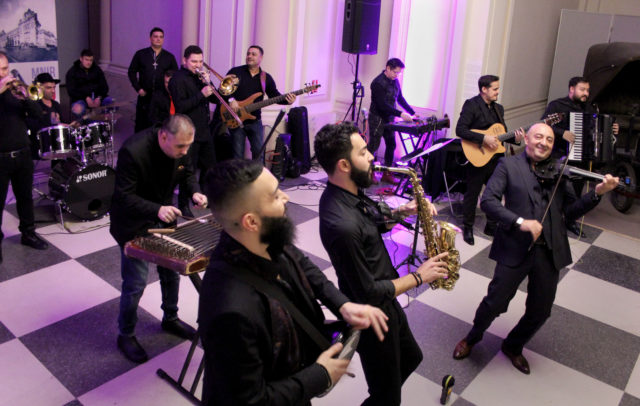
Mahala Rai Banda
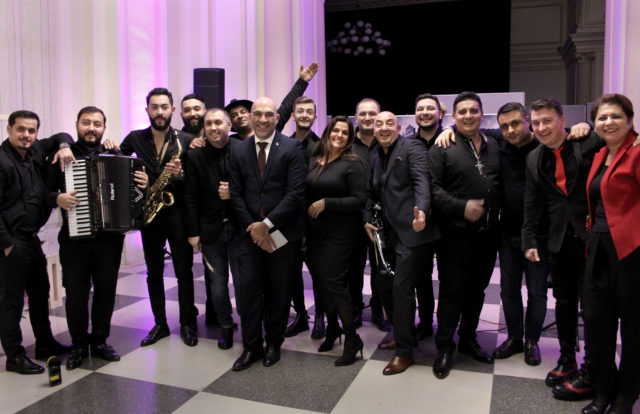
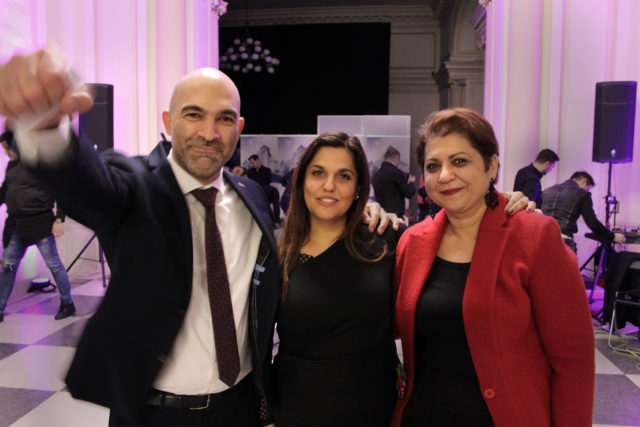
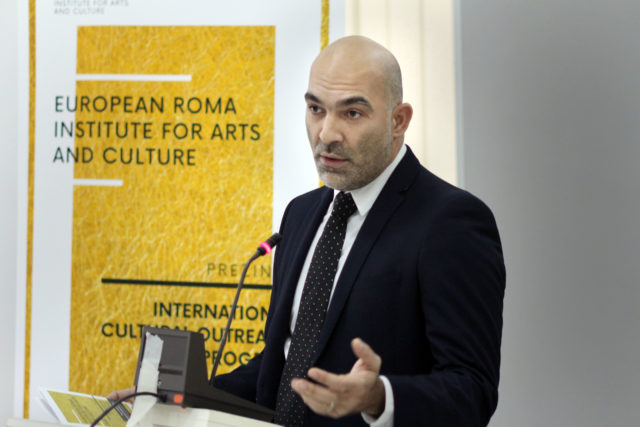
Dr. Ciprian Necula, Romano ButiQ/SNSPA Masterul de Studii Rome
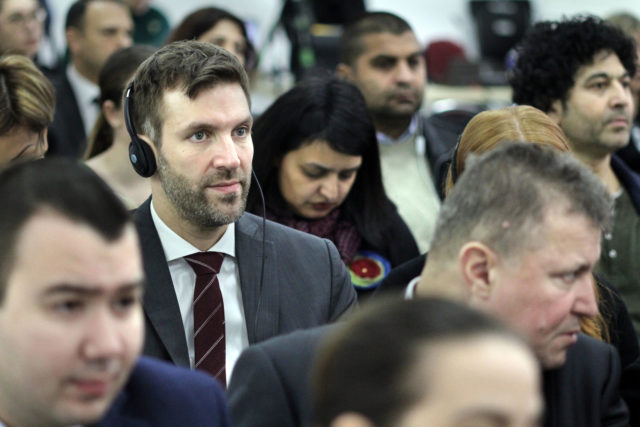
Audience
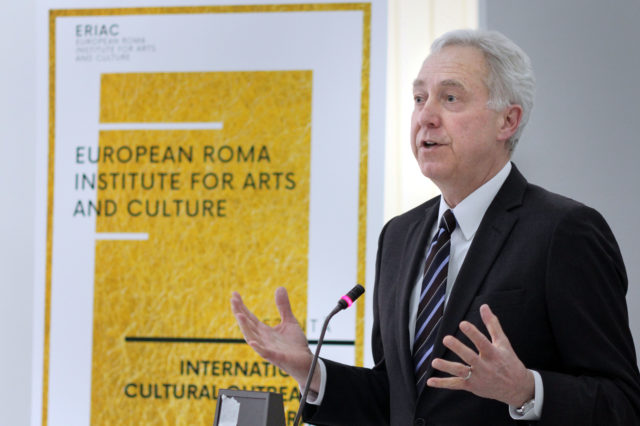
E.S. Dl Hans G. Klemm, US Ambassador to Romania
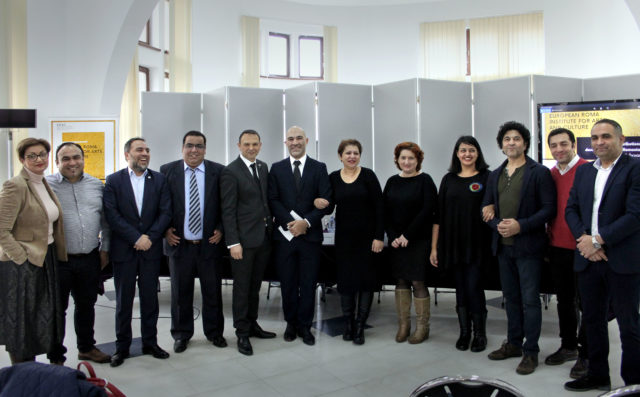
Romanian Roma activists, artists and politicians
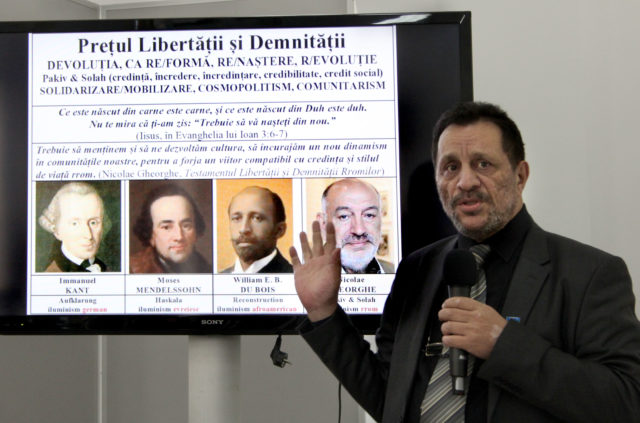
Dr. Vasile Ionescu
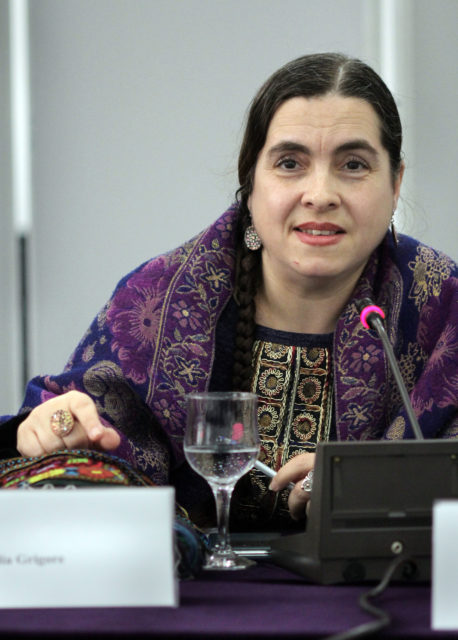
Dr. Delia Grigore
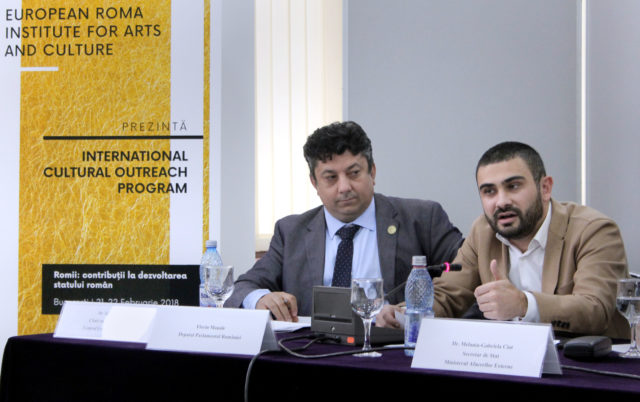
Dr. Iulius Rostas, Chair on Romani Studies, Central European University
Mr. Florin Manole, member of Romanian Parliament/ Partidul Social Democrat
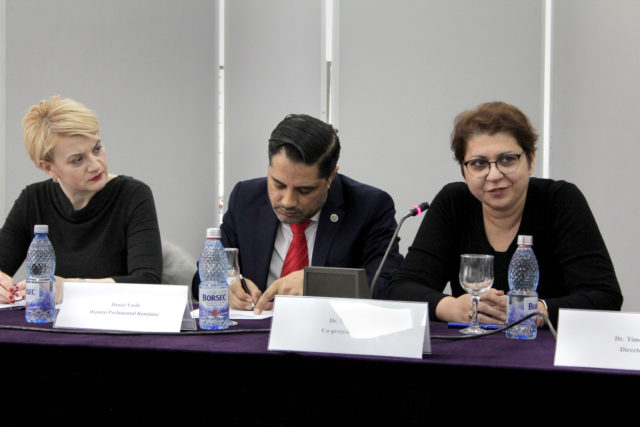
Dr. Melania-Gabriela Ciot, Secretary of State, Ministry of Foreign Affairs
Mr. Daniel Vasile, Member of Romanian Parliament/ Partida Romilor Pro Europa
Dr. Nicoleta Bitu, ERIAC Board Member
photo: ERIAC/ Nihad Nino Pušija